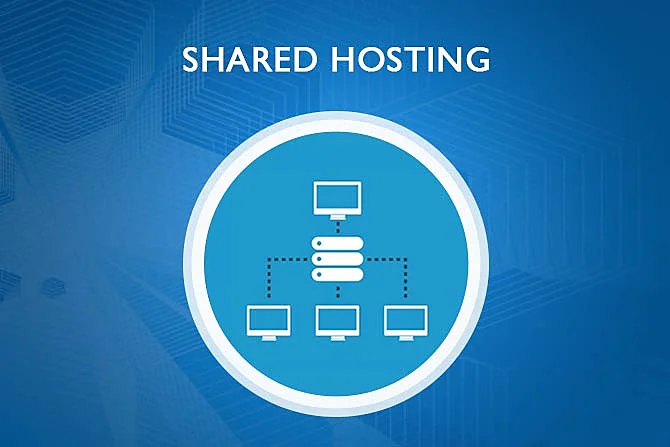Choosing the right hosting solution is one of the most critical decisions you’ll make when building or managing a website. The hosting you choose can significantly impact your site’s performance, security, scalability, and overall user experience. Two of the most popular hosting options are shared Hosting and Virtual Private Server (VPS) Hosting. Both have their pros and cons, and the best choice depends on your specific needs, budget, and technical needs.
In this comprehensive guide, we’ll explore the differences between shared hosting and VPS hosting, their advantages and disadvantages, and help you decide which option is best for your website to enable.
What is Shared Hosting?
Shared hosting is a type of web hosting where multiple websites share the same server and its resources, such as CPU, RAM, and storage. It’s an affordable and beginner-friendly option for all, making it ideal for small websites, blogs, and startups with low to moderate traffic.

Key Features of Shared Hosting:
- Cost-Effective: Shared hosting is the most affordable hosting option, making it perfect for beginners or those on a tight budget.
- Ease of Use: Most shared hosting providers offer user-friendly control panels (like cPanel) and one-click installations for popular applications like WordPress.
- Managed Services: The hosting provider handles server maintenance, updates, and security, so you don’t need technical expertise while using it.
- Limited Resources: Since resources are shared among multiple users, your site’s performance may be affected by other websites on the same server.
- Basic Security: Shared hosting typically includes basic security features like firewalls and malware scanning, but it may not be as secure as VPS hosting.
What is VPS Hosting?
VPS hosting is a more advanced hosting solution where a physical server is divided into multiple virtual servers using virtualization technology. Each VPS operates independently, with its own dedicated resources, operating system, and software. VPS hosting is ideal for medium to large websites, e-commerce stores, and businesses that need more control and scalability.

Key Features of VPS Hosting:
- Dedicated Resources: Each VPS has its own allocated resources (CPU, RAM, storage), ensuring consistent performance even during traffic spikes.
- Scalability: VPS hosting allows you to easily upgrade your resources as your website grows.
- Full Control: You have root access to your server, allowing you to install custom software, configure settings, and optimize performance.
- Enhanced Security: Since your server is isolated from others, VPS hosting offers better security and privacy compared to shared hosting.
- Higher Cost: VPS hosting is more expensive than shared hosting, but it provides better performance and flexibility.
Read Also: 10 Best Managed WordPress Hosting Providers in 2025
Shared Hosting vs VPS Hosting Differences
To help you understand which hosting option is best for your needs, let’s compare shared hosting and VPS hosting across several key factors:
- Shared Hosting affordable pricing starts at $2–$10/month – VPS Hosting is more expensive (starting at $20–$50/month).
- Performance is limited in shared resources – there is consistent performance with dedicated resources.
- Scalability is limited in shared hosting, but scalability is high in VPS hosting.
- Security is just a basic feature security features – VPS has enhanced security and isolation.
- Control is limited in shared hosting and controlled by the hosting provider – full root access and customization options
- Technical expertise beginner-friendly – requires some technical knowledge to operate
- Ideal for mall websites, blogs, startups – medium to large websites, e-commerce, businesses.
Advantages of Shared Hosting
#1. Affordability: Shared hosting is the most budget-friendly option, making it ideal for beginners, small businesses, and personal projects. Prices typically start as low as $2–$10 per month.
#2. Ease of Use: Most shared hosting providers offer intuitive control panels (like cPanel) and one-click installations for popular applications like WordPress, Joomla, and Drupal. This makes it easy for beginners to set up and manage their websites.
#3. Managed Services: With shared hosting, the hosting provider handles server maintenance, updates, and security, so you don’t need to worry about technical details.
#4. Ideal for Low-Traffic Websites: If your website receives low to moderate traffic, shared hosting is a cost-effective solution that meets your needs without overpaying for resources.
Disadvantages of Shared Hosting
#1. Limited Resources: Since resources are shared among multiple users, your site’s performance may suffer if other websites on the same server experience high traffic or resource usage.
#2. Lack of Control: Shared hosting offers limited customization options, as you don’t have root access to the server. This can be restrictive for advanced users who need specific configurations.
#3. Security Risks: Shared hosting is less secure than VPS hosting because all websites on the server share the same environment. If one site is compromised, it could potentially affect others.
#4. Scalability Issues: Shared hosting is not ideal for websites that expect rapid growth or high traffic. Upgrading to a more powerful hosting solution may be necessary as your site expands.
Advantages of VPS Hosting
#1. Dedicated Resources: VPS hosting provides dedicated resources, ensuring consistent performance even during traffic spikes. This makes it ideal for medium to large websites and e-commerce stores.
#2. Scalability: VPS hosting allows you to easily upgrade your resources (CPU, RAM, storage) as your website grows, making it a flexible and future-proof solution.
#3. Enhanced Security: Since your server is isolated from others, VPS hosting offers better security and privacy. You can also implement custom security measures to protect your site.
#4. Full Control: With root access, you have complete control over your server, allowing you to install custom software, configure settings, and optimize performance.
#5. Better Performance: VPS hosting delivers faster load times and better overall performance compared to shared hosting, which is crucial for user experience and SEO.
Disadvantages of VPS Hosting
#1. Higher Cost: VPS hosting is more expensive than shared hosting, with prices typically starting at $20–$50 per month. However, the additional cost is justified by the improved performance and flexibility.
#2. Technical Expertise Required: Managing a VPS requires some technical knowledge, especially if you opt for an unmanaged VPS plan. Beginners may find it challenging to configure and maintain their servers.
#3. Responsibility for Maintenance: With an unmanaged VPS, you’re responsible for server maintenance, updates, and security. This can be time-consuming and requires technical expertise.
When to Choose Shared Hosting?
Shared hosting is the best choice for;
- Beginners: If you’re new to website management and don’t have technical expertise, shared hosting is a user-friendly and affordable option.
- Small Websites: If you’re running a personal blog, portfolio, or small business website with low to moderate traffic, shared hosting is sufficient.
- Budget-Conscious Users: If you’re on a tight budget and don’t need advanced features, shared hosting is the most cost-effective solution.
When to Choose VPS Hosting
VPS hosting is the best choice for:
- Growing Websites: If your website is experiencing growth and needs more resources to handle increased traffic, VPS hosting provides the scalability you need.
- E-Commerce Stores: Online stores require fast load times, secure transactions, and reliable performance, making VPS hosting an excellent choice.
- Advanced Users: If you need full control over your server and have the technical expertise to manage it, VPS hosting offers unparalleled customization options.
- High-Traffic Websites: If your website receives high traffic or requires consistent performance, VPS hosting ensures your site can handle the load.
Read Also: Best Hosting with Free SSL: Secure & Affordable Web Hosting Solutions
Top Shared Hosting Providers
If you decide that shared hosting is the right choice for your website, here are some of the best-shared hosting providers to consider:
#1. Bluehost
- Price: Starting at $2.95/month
- Features: Free domain, free SSL, one-click WordPress installation, 24/7 support.
- Best for Beginners and small websites.
#2. HostGator
- Price: Starting at $2.75/month
- Features: Unlimited bandwidth, free SSL, user-friendly control panel.
- Best For: Small businesses and personal websites.
#3. SiteGround
- Price: Starting at $3.99/month
- Features: Free SSL, daily backups, excellent customer support.
- Best For: WordPress users and small to medium websites.
Top VPS Hosting Providers
If VPS hosting is more suited to your needs, here are some of the best VPS hosting providers to consider:

#1. InMotion Hosting
- Price: Starting at $29.99/month
- Features: Free SSL, SSD storage, 24/7 support.
- Best For: Growing businesses and e-commerce stores.
#2. Liquid Web
- Price: Starting at $59/month
- Features: Fully managed VPS, high-performance servers, 24/7 support.
- Best For: High-traffic websites and businesses.
#3. A2 Hosting
- Price: Starting at $39.99/month
- Features: Turbo servers for faster performance, free SSL, and scalable resources.
- Best For: Developers and performance-focused websites.
Read Also: 10 Best VPS Hosting Services in 2025
Conclusion
Choosing between shared hosting and VPS hosting depends on your website’s needs, budget, and technical expertise. Shared hosting is an affordable and beginner-friendly option, ideal for small websites and those just starting. On the other hand, VPS hosting offers dedicated resources, enhanced security, and scalability, making it perfect for growing websites, e-commerce stores, and businesses.
Before making a decision, assess your website’s traffic, performance requirements, and long-term goals. If you’re unsure, many hosting providers offer flexible plans that allow you to start with shared hosting and upgrade to VPS hosting as your site grows.
Ultimately, the best hosting solution is the one that aligns with your needs and helps you achieve your online goals. Whether you choose shared hosting or VPS hosting, investing in a reliable provider will ensure your website runs smoothly and securely.
Was this helpful?
Leave a useful comment.

